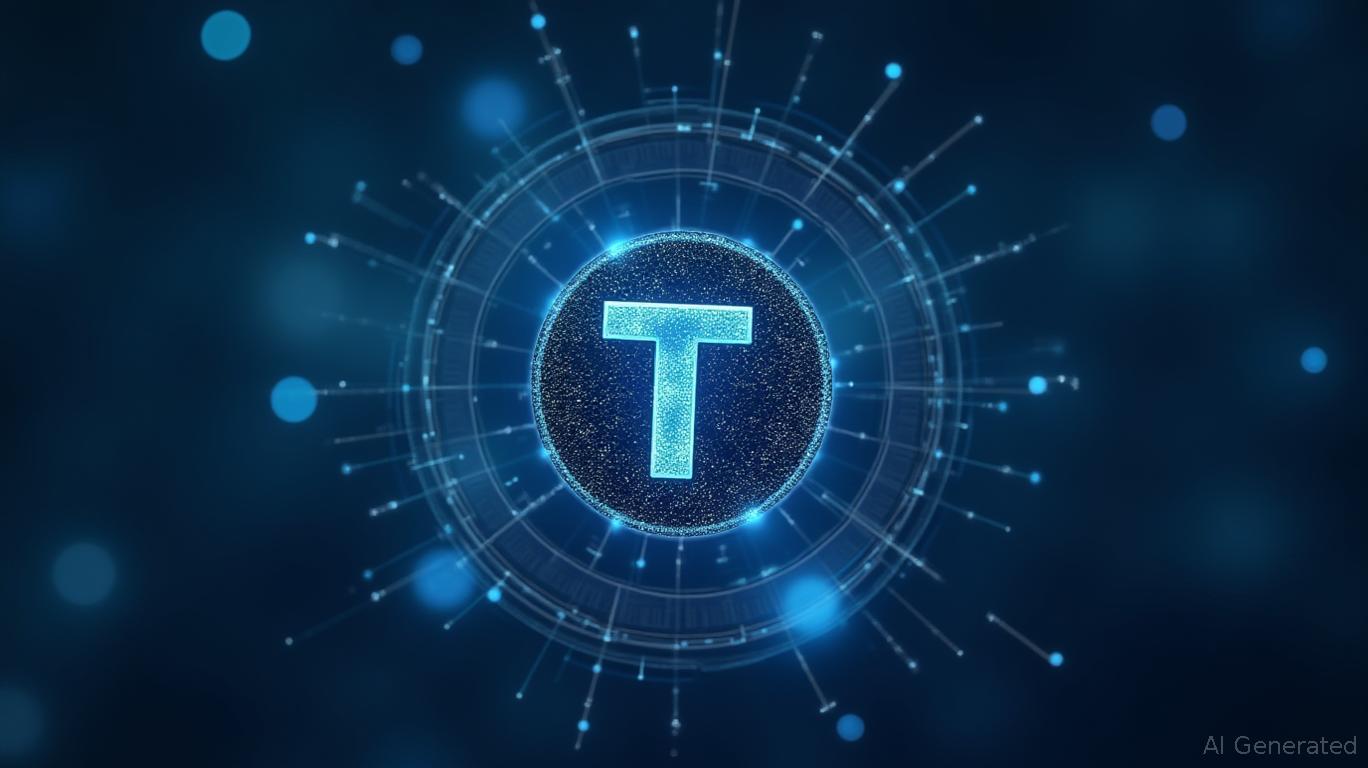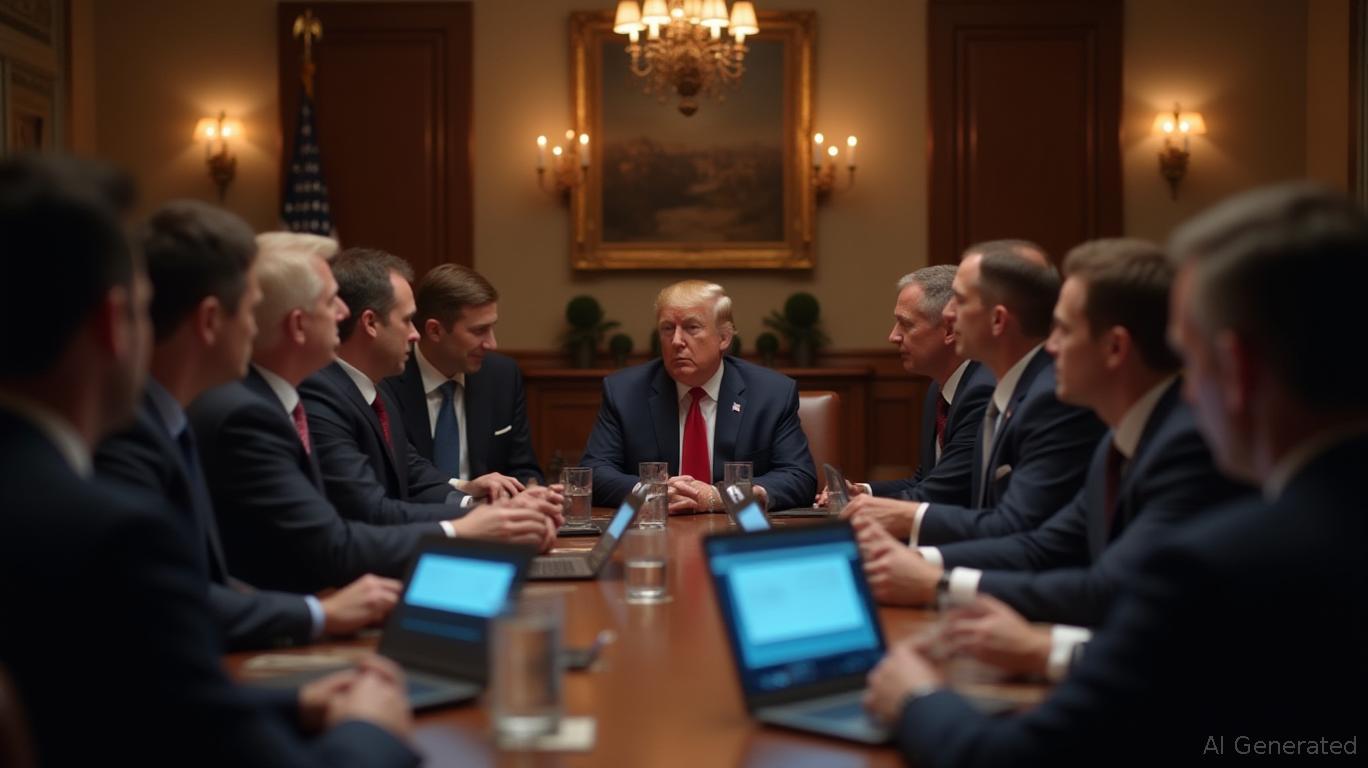OpenAI's Drive for AI Advancement Faces Challenges from EU Laws and Competing Companies
- OpenAI launches Project Mercury to automate financial modeling, hiring 100+ Wall Street professionals to disrupt junior analyst workflows. - ChatGPT Atlas browser challenges Google by integrating AI agents for tasks like summarization, triggering a 3% Alphabet stock drop. - EU AI Act imposes strict liability rules on high-risk systems, intensifying regulatory scrutiny on OpenAI's general-purpose models. - Meta blocks third-party AI chatbots on WhatsApp, forcing OpenAI to withdraw integration and escalati
OpenAI's Bold Moves and Regulatory Hurdles Reflect a Changing AI Industry
OpenAI is rapidly broadening its reach into sectors outside of consumer AI, most recently with the introduction of Project Mercury—a confidential project focused on automating financial modeling tasks that are typically handled by junior investment bankers. This initiative has recruited more than 100 ex-professionals from firms such as

At the same time, OpenAI has introduced ChatGPT Atlas, an AI-driven web browser intended to rival Google's supremacy in online search. Initially released for macOS, Atlas incorporates the Operator AI agent to automate actions such as summarizing web pages, completing online forms, and making reservations, as reported by
As OpenAI expands, regulatory oversight is increasing due to concerns over accountability and ethical standards. The European Union's AI Act, which became law in August 2024, sets out rigorous rules for high-risk AI, including requirements for transparency and risk evaluation, according to a
Meta's latest policy update has added another layer of complexity to the regulatory scene. The company has prohibited third-party AI chatbots, including ChatGPT, from WhatsApp through new API guidelines, requiring OpenAI to end its integration by January 15, 2026, as noted by
As OpenAI maneuvers through these changes, the tension between advancing technology and maintaining responsibility remains delicate. Although the company highlights AI's promise to boost efficiency, critics caution about unforeseen risks, especially in sensitive fields like finance and healthcare. The EU's regulatory approach, with its focus on human-centered AI and strict accountability, could become a model for international regulation, though its broad scope may pose compliance challenges for American companies operating in Europe.
Disclaimer: The content of this article solely reflects the author's opinion and does not represent the platform in any capacity. This article is not intended to serve as a reference for making investment decisions.
You may also like
Crypto Partnership Instability Exposed in $120M AI Collaboration Agreement
- Ocean Protocol and Fetch.ai settled a $120M dispute by returning 286M FET tokens, avoiding prolonged litigation and refocusing on decentralized AI/Web3 projects. - The 2024 ASI Alliance merger triggered accusations over token liquidity, with Ocean converting OCEAN to FET and transferring 286M tokens to exchanges. - FET's 93% price drop since the merger highlighted governance flaws, prompting Ocean to exit the alliance and Fetch.ai to prioritize community protection. - The settlement includes legal cost c

Ozekibart's 52% Reduction in Risk Sparks 70% Jump Amid Concerns Over Liver Safety
- Inhibrx Biosciences’ ozekibart showed 52% reduced disease progression risk in chondrosarcoma, driving a 70% post-market stock surge. - Combination trials in colorectal and Ewing sarcoma showed 23%–64% response rates, suggesting broader oncology potential. - Hepatotoxicity concerns led to monitoring strategies, reducing adverse events to 11.8% in ozekibart group. - Company plans 2026 BLA submission; stock surged 63% pre-market after prior 10% decline.

Tether Seeks to Democratize AI, Returning Power to the People
- Tether launches QVAC Genesis I (41B-token synthetic dataset) and QVAC Workbench, aiming to decentralize STEM-focused AI development by enabling on-device training and reducing cloud dependency. - The tools prioritize data privacy through local processing, supporting open-source models like Llama and Medgemma while targeting improved AI precision in math, physics, and medicine. - CEO Paolo Ardoino emphasizes "returning intelligence to the people," aligning with Tether's blockchain expertise to shift AI in

XRP News Update: Silicon Valley and Crypto Investors Back Trump’s Ballroom in Support of Pro-Digital Policies
- Trump's $300M White House ballroom, funded by crypto firms and Big Tech, sparks debates over corporate influence and transparency in political donations. - Ripple, Tether, Coinbase, and YouTube (via $22M) join Amazon/Google/Meta in backing the project, signaling crypto/tech sector's strategic alignment with Trump's pro-digital policies. - Critics argue donor recognition (plaques) blurs ethical lines, while preservationists warn the 90,000-sq-ft addition risks damaging the White House's historic design. -
